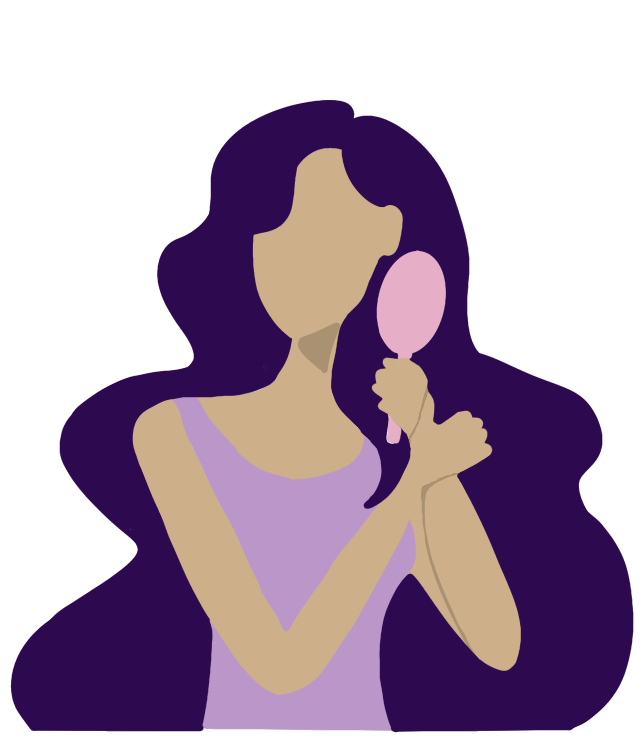Since the 1930’s we have all been trained to use shampoo on our hair. We have all been accustomed to the fact that if we do not use it, we are considered unclean by the general public. This idea has been pounded into the heads of most individuals worldwide for almost a century. However, we can not help but ask the essential question, was shampoo genuinely created for hygiene, or was it created for a cash grab?
According to Beauty Blog, shampoo was first developed in 1903 in Germany by the well-known brand, Schwarzkopf, though shampoo’s wave did not hit America for decades later. This shampoo wave consisted of hair companies targeting women and their beauty standards. According to these companies, if women did not use shampoo and have their scalp smelling like flowers, they would not find a husband, close to the same marketing as body hair removal. This kind of propaganda targeted against women was familiar for this time, as women had to always go to unrealistic lengths to meet the beauty standards set by men.
The fact is, ditching shampoo has been completely hygienic this entire time. However, the marketing for the “uncleanliness” still continues to this day. Head & Shoulders, one of the most popular hair companies defends the use of shampoo and claims,
“It is actually important to remove excess oil… oil buildup will bind your hair in clumps, and attract dust, pollen, pollution, and other dirt.”
This statement, like many other shampoo companies, has been proven untrue through the experience of many “no pooers” as well as medical experts. Like most other shampoo companies facing the same dispute, Head & Shoulders users have filed lawsuits against the company for hair loss, with Hims claiming that Head & Shoulders contains ingredients that promote scalp dryness (which ironically creates dandruff) and irritation, as well as fastening oil production. The ingredients and their side effects on the scalp show consumers that these companies do not have hygiene in mind, only money. These uncomfortable problems that so many individuals face are created by these companies so the consumers feel like they must buy more of their product to fix the issue, which will, in reality, only make it worse.
On the contrary from Head & Shoulders, Medical News Today states,
“For most people, there is no medical need to shampoo….as rinsing with water can remove dirt and dandruff.”
This shows that realistically, most people do not need to use shampoo. Although, going “no poo” is not for everybody as in general, can entail difficult upkeep, especially for those with thinner or curlier hair types.
Those that are able to go “no poo” see that the benefits of not using shampoo are endless. Going “no poo” leaves the scalp more moisturized, as shampoo strips the natural oils on the scalp, leaving hair dry and brittle. It lessens or completely removes dandruff, flakes created by a dry scalp. Additionally, it makes the hair thicker, more voluminous and promotes rapid hair growth.
If you are thinking of going “no poo” there are a few things that need to be considered. Ditching shampoo can leave the hair in a period of rapid oil production for at most, a month. Essentially, this is your scalp detoxing from the chemicals that have been stripping the hair. This stage does not last forever, as the sebaceous glands in the scalp will eventually balance and leave the hair in its natural oil cycle. Going “no poo” does not mean that your hair should not touch water, this is a common misconception that paints the lifestyle choice as unhygienic. To remove the excess oil from the scalp, it is recommended to use scalp scrubbers in the shower under direct water, as they can gently remove the natural oils, no shampoo needed. It is also recommended to use boar bristle brushes, as they evenly distribute hair oil from the roots to the ends, ensuring nourished and balanced hair.
Unfortunately, going “no poo” also means ditching other hair products like mousse, heat protectant, and hair gel. Over time, these products will accumulate in the hair and create a product build-up that can attract dirt and dust. This happens because these products are usually sticky when applied to the hair. Using hair oils and conditioners on the mids and ends of the hair is perfectly fine, as long as it does not leave a tacky texture in the hair.
Lastly, it is important to research going “no poo” to decide if it is right for you. When researching the matter, it is important to understand the scalp and how it functions, to rely on testimonies from those who have gone “no poo”, to research different oils and herbs and their hair benefits and to get opinions from numerous hair care blogs and medical websites. Additionally, it is important to research alternate hair-washing methods. On the contrary, if you choose to continue using shampoo, it would be useful to research organic shampoos that do not use as many harsh chemicals on the scalp in order to protect you and your hair.
It is time to start listening to your scalp and hair. If you struggle with dandruff, dry scalp, hair growth, flat hair, hair growth, hair thickness, or oily scalp, “no poo” may be for you!



